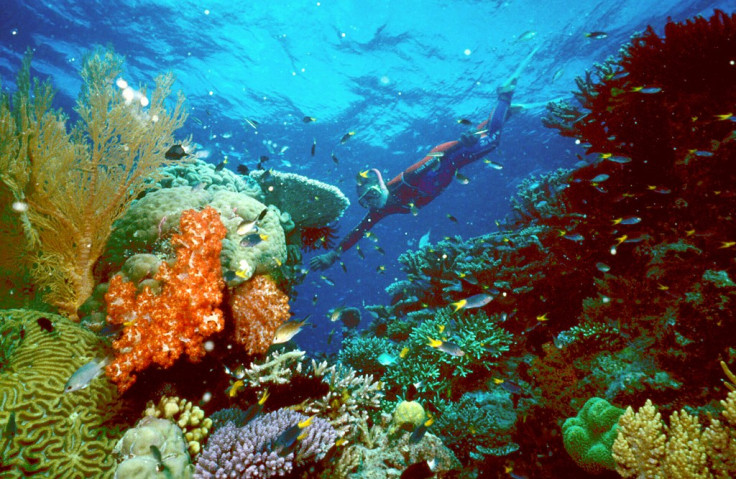Great Barrier Reef Coral Growth Rate Falls by 40% in 40 Years 'Due to Ocean Acidification'

The growth rate of coral in Australia's Great Barrier Reef is being "hammered" by ocean acidification caused by human activity, scientists have said.
Coral growth rates have fallen by 40% in the last 40 years, which researchers believe is largely due to the absorption of carbon dioxide into the ocean.
"Coral reefs are getting hammered," said Ken Caldeira, from the Carnegie Institution in Washington DC. "Ocean acidification, global warming, coastal pollution, and overfishing are all damaging coral reefs."
Published in the journal Geochimica et Cosmochimica Acta, researchers compared current measurements of growth rate in part of the Great Barrier Reef with measurements taken in the mid-1970s.
Coral reefs are extremely sensitive to changes in ocean chemistry. Since the start of the Industrial Revolution, around a third of CO2 released through human activity has been absorbed by oceans, where it damages reefs.

This is because coral reefs use a mineral called aragonite to make their skeletons in a process called calcification. When CO2 is absorbed by the ocean, it forms carbonic acid, which makes it more difficult for marine organisms to grow their skeletons and shells.
Researchers looked at growth rate measurements taken from a part of the Great Barrier Reef known as Bird Island between 1975 and 1979 and compared them to samples taken from the nearby Lizard Island between 2008 and 2009. The rate of growth was 40% lower.
They were unable to show a change in the amount of live coral in the reefs over the period, however.
Previously, lead author Jack Silverman, from Israel Oceanographic and Limnological Research Ltd, found if current CO2 emissions continue, reefs around the world will start dissolving over the next few decades.
His estimates of the impact of ocean acidification explain the 40% decline in growth, the researchers said.
"Coral reefs have been around for millions of years, but are likely to become a thing of the past unless we start running our economy as if the sea and sky matters to us very soon," Caldeira said.
© Copyright IBTimes 2025. All rights reserved.






















